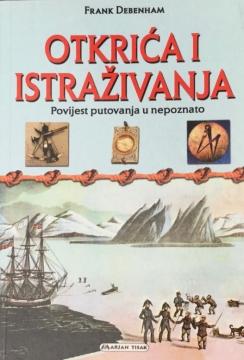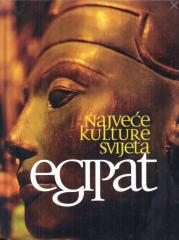
Otkrića i istraživanja: Povijest čovjekovih putovanja u nepoznato
Debenham (1883–1965), a British geographer and glaciologist, a participant in Scott's Antarctic expedition Terra Nova (1910–1913, surviving as only one of five), here synthesizes the history of exploration as an epic story of human curiosity and courage.
The book, structured chronologically with atlas maps and illustrations, traces the journeys from prehistoric migrations 50,000 years ago (from Africa to Eurasia) to modern discoveries: Phoenician seafarers, the Viking discovery of Greenland (Leif Eriksson, 1000 AD), Columbus's voyage (1492), Magellan's circumnavigation (1519–1522), James Cook in the Pacific (18th century), Livingstone in Africa, Amundsen's South Pole (1911), and Scott's tragic attempt. Chapters: "Why Man Explores and How He Learned to Explore?", "The Exploration of America," "Asia and the Pacific Basin," "Africa and Australia," and "The Polar Regions and Space."
Debenham emphasizes motivations—trade, religion, science, imperialism—and technological innovations: from canoes to steamships. As an atlas, the book visually reconstructs routes, discoveries and mistakes (e.g. the flat Earth myth), criticizing Eurocentrism but celebrating universal passion. Quote: “Exploration is not only discovering new lands, but discovering new selves.”
Influenced popular geography, praised for its accessibility, useful in schools for understanding globalization. In Croatia, relevant to the maritime tradition of Dalmatia, it reminds: every journey changes the world.
Multiple copies are available





